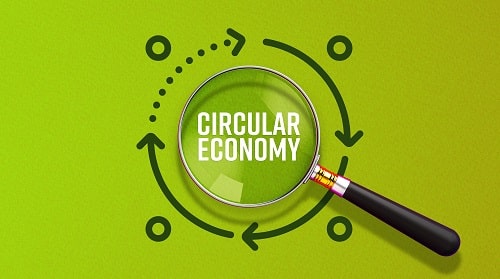A third of employers do not feel well equipped to support women going through the menopause, according to an Acas poll. This is by no means an isolated finding – a long tail of research reminds us that the menopause still sits low on the list of workplace priorities.
Features
Let’s step up the talk and action on menopause and work
We’ve seen a similar journey with mental health, where fear of the unknown combined with historical misconceptions have long underlaid a culture of silence in workplaces. Indeed, a report from the APPG on Menopause declared: “Menopause has been a taboo subject in the workplace more than almost anywhere else.” So how do we normalise it?
 Simone Cheng: "Myths about the menopause remain commonplace and can be fuelled by misunderstanding and misinformation."
Simone Cheng: "Myths about the menopause remain commonplace and can be fuelled by misunderstanding and misinformation."
Separating fact from fiction
Myths about the menopause remain commonplace and can be fuelled by misunderstanding and misinformation. Upping our knowledge doesn’t mean becoming medical experts, but developing a good understanding of the facts can provide employers and managers with the necessary foundation to have trusted conversations with their staff:
- It is not always obvious who is going through the menopause – trans men, non-binary people, and those with variations of sex development (VSD) (some people might prefer to identify as intersex or use the term DSD or ‘differences in sex development’) can also experience the menopause. But for some, there can be a double taboo in disclosing their symptoms and, at the same time, their gender identity or their VSD. Different cultural perceptions can also influence the way the menopause can be experienced and talked about.
- The menopause can happen at any age – while it usually occurs between the ages of 45 and 55, the menopause can come later or earlier in life. Low awareness of early or premature menopause, including medical menopause, can mean that younger people face a prolonged process of accessing support both in and outside of work.
- There’s far more to the menopause than hot flushes – hot flushes is one of as many as 34 common symptoms including brain fog, headaches, palpitations and mood changes, all with potentially debilitating impacts. The menopause can trigger new health conditions or worsen existing ones, and some people may experience no symptoms at all.
There is a real urgency in broadening the current discourse from one which focuses predominantly on the experiences of older, white women, to one which is inclusive of everyone who can be impacted by the menopause. Employers would do well to avoid a one-size-fits-all approach and instead approach conversations through an intersectional lens.
 We must broaden the discourse to include everyone who can be impacted by the menopause, not just older, white women. Photograph: iStock
We must broaden the discourse to include everyone who can be impacted by the menopause, not just older, white women. Photograph: iStock
Recognising the menopause as a business matter
If, for most people, the menopause is a natural part of life, why is it an area so stigmatised? Any part of the workforce can be impacted by the menopause at any stage, whether directly as a result of symptoms or indirectly where individuals are involved in providing a supporting or caring role for another. It has therefore always been a health and wellbeing issue for businesses, but not one fully understood or acknowledged.
The Women and Equalities Committee’s inquiry into menopause and the workplace last year found that most respondents reported that symptoms affected them at work, including on their ability to concentrate and on stress and confidence levels. However, less than a third told anyone at work due to worries around privacy and people’s reactions. Notably, a significant number simply did not know who to tell.
It’s time for employers to speak up and take on a more proactive role, as recognised too in the government’s first ever Women’s Health Strategy for England. If the moral case to act isn’t enough, the Department for Work and Pensions has confirmed that it will explore methodology to quantify the cost of menopause to individuals, businesses, health services and wider society.
In the meantime, there is no escaping the alarming headlines. Research Without Barriers, for instance, said a lack of workplace support for the menopause could force more than one million women in the UK, or one in four, to leave their jobs. Any unintended change to labour market participation among women can ultimately be a detriment to achieving equality, including in gender pay, as well as to organisational and individual health and productivity.
Creating safe and supportive workplaces
There is no single step-by-step guide of how to create a physically and psychologically safer environment at work; the journey is specific to an organisation. But there are certainly best practice measures that employers, whatever their size, can incorporate to become a more menopause-confident workplace.
 What support looks like will vary according to individual needs and likely need to change over time. Photograph: iStock
What support looks like will vary according to individual needs and likely need to change over time. Photograph: iStock
Acas’s poll, for example, found that over a third (37 per cent) of employers are not confident that managers have the necessary skills to support staff experiencing menopause symptoms. Regular training, not just for people managers but for all senior leaders and staff, is a core element of the solution.
This should cover:
The facts – equipping everyone with knowledge about who the menopause can affect, when and how, can help us eliminate longstanding stereotypes, including those which point to a single experience of menopause
The law – both employers and employees have obligations under health and safety and employment law, but are they getting the basics right? Complaints of discrimination and harassment, including disparaging comments and a failure to make reasonable adjustments, come up frequently when employees approach Acas about their menopause experiences at work
The practices – employers and workers alike may be tempted to shy away from difficult conversations, often for fear of saying the wrong thing. But having these early on allows the right support to be implemented and indeed can lessen the likelihood of conflict arising in the future. Training can enhance staff’s confidence in approaching discussions by looking at the importance of active listening, as well as raising awareness of the workplace support available and external bodies too.
What support looks like will vary according to individual needs and will likely need to change over time. Most reasonable adjustments will carry very little to no cost – amending certain duties, offering flexibility in hours and place of work, and allowing additional rest breaks are just a few of the simple options that could be explored.
Lifting the taboo for good
Despite the material impact that the menopause can have on working life, we still have some way to go in overcoming ongoing stigma. There needs to be far greater recognition among employers of the role they can play both in advancing the dialogue, countering misconceptions, and transforming on-the-ground attitudes and practices. Without this, we risk being stuck in a vicious cycle of silence, with further negative consequences for employees, businesses and our wider economy.
Acas’s guidance on the menopause provides further insights on how employers can embed the subject in their discourse and in their actions, including through an organisational policy and relevant training for managers.
See: acas.org.uk/menopause-at-work
Simone Cheng is Senior Policy Advisor at Acas.
FEATURES

How to build circular economy business models
By Chloe Miller, CC Consulting on 07 April 2025
Widespread adoption of a circular economy model by business would ensure greater environmental and economic value is extracted and retained from raw materials and products, while simultaneously reducing carbon emissions, protecting the environment and boosting business efficiency and reputation.

What does the first year on an accelerated net zero path have in store for UK businesses?
By Team Energy on 07 April 2025
The UK is halfway to net zero by 2050 and on a new, sped-up net zero pathway. In light of this, Graham Paul, sales, marketing & client services director at TEAM Energy, speaks to TEAM Energy’s efficiency and carbon reduction experts about the future of energy efficiency and net zero in the UK.

Aligning organisational culture with sustainability: a win, win for the environment and business
By Dr Keith Whitehead, British Safety Council on 04 April 2025
The culture of an organisation is crucial in determining how successfully it implements, integrates and achieves its sustainability and environmental goals and practices. However, there are a number of simple ways of ensuring a positive organisational culture where everyone is fully committed to achieving excellent sustainability performance.



